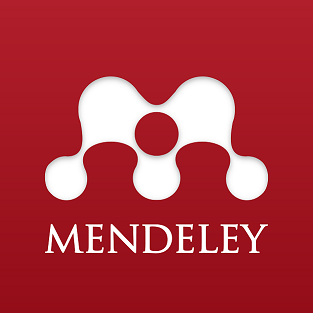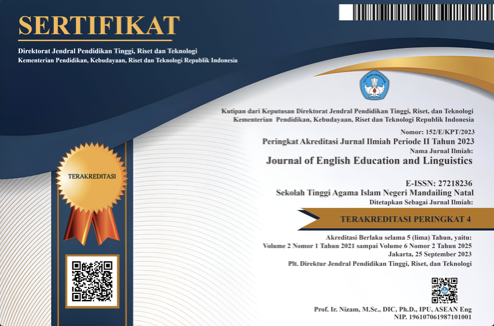DEVELOPMENT OF A PROPOSED ELECTIVE COURSE IN BICOL LITERATURE
DOI:
https://doi.org/10.56874/jeel.v4i2.1530Keywords:
Development of Elective Course, Bicol LiteratureAbstract
This study documented the development of a proposed elective course in Bicol Literature. These learning experiences were organized using Active Learning Strategies and Communicative Language Teaching strategies that allowed the students to work collaboratively with others, utilize technology and other social media platforms and be able to use English confidently and their local language judiciously. In the evaluation part of the course, the objectives of the course and the interests and needs of the students were considered along with the competencies that were expected from them. In conclusion, the interests and needs of the students are influenced by their ability to complete tasks, the competencies needed in their future careers, and to be appreciated or recognized through technology and social media platforms. Further, in formulating objectives, selecting content and learning activities, and organizing the content and learning experiences for a course, the years of experience of the teachers are reliable since they understand the interests of the students as well as the expected competencies, and school policies. Moreover, to engage the students in the content, the strategies must also be aligned with their interests, needs, and cognitive level.
References
Albantani, M. A. (2018). Think Globally. Ac Locally: The strategy of Incorporating Local Wisdom in Foreign Language Teaching in INdonesia. UK: Univercity of Birmingham.
Aquino, G. (2008). Curriculum Innovation. National Bookstore.
Hijastro, K. (2023). Utilizing Local Luteracy Text as Intructional Materials for 21 Century.
Paderan, M. (2016). Narratives of Folk Healing in Bato. London: University of Saint Anthony.
Pawilen, G. (2015). Curriculum Development. A guide for teachers and Students .
Velasco, C. a. (Issues and Concerns in Teaching Phllipine Literature). 2019. London: University of Birmingham.
Velez, M. (2018). Folk Healing Narratives, A Grounded Theory. University of Neuva Caceres.
Downloads
Published
Issue
Section
License
All articles published in the Journal of English Education and Linguistics are licensed under a Creative Commons Attribution-ShareAlike 4.0 International (CC BY-SA) license. This means anyone is free to copy, transform, or redistribute articles for any lawful purpose in any medium, provided they give appropriate attribution to the original author(s) and Journal of English Education and Linguistics, link to the license, indicate if changes were made, and redistribute any derivative work under the same license.
Copyright on articles is retained by the respective author(s) without restrictions. A non-exclusive license is granted to the Journal of English Education and Linguistics to publish the article and identify itself as its original publisher, along with the commercial right to include the article in a hardcopy issue for sale to libraries and individuals.
Although the conditions of the Creative Commons Attribution-ShareAlike 4.0 International (CC BY-SA) license do not apply to authors (as the copyright holder of your article, you have no restrictions on your rights), by submitting to the Journal of English Education and Linguistics, authors recognize the rights of readers and must grant any third party the right to use their articles to the extent provided by the license.

This work is licensed under a Creative Commons Attribution-ShareAlike 4.0 International License.








